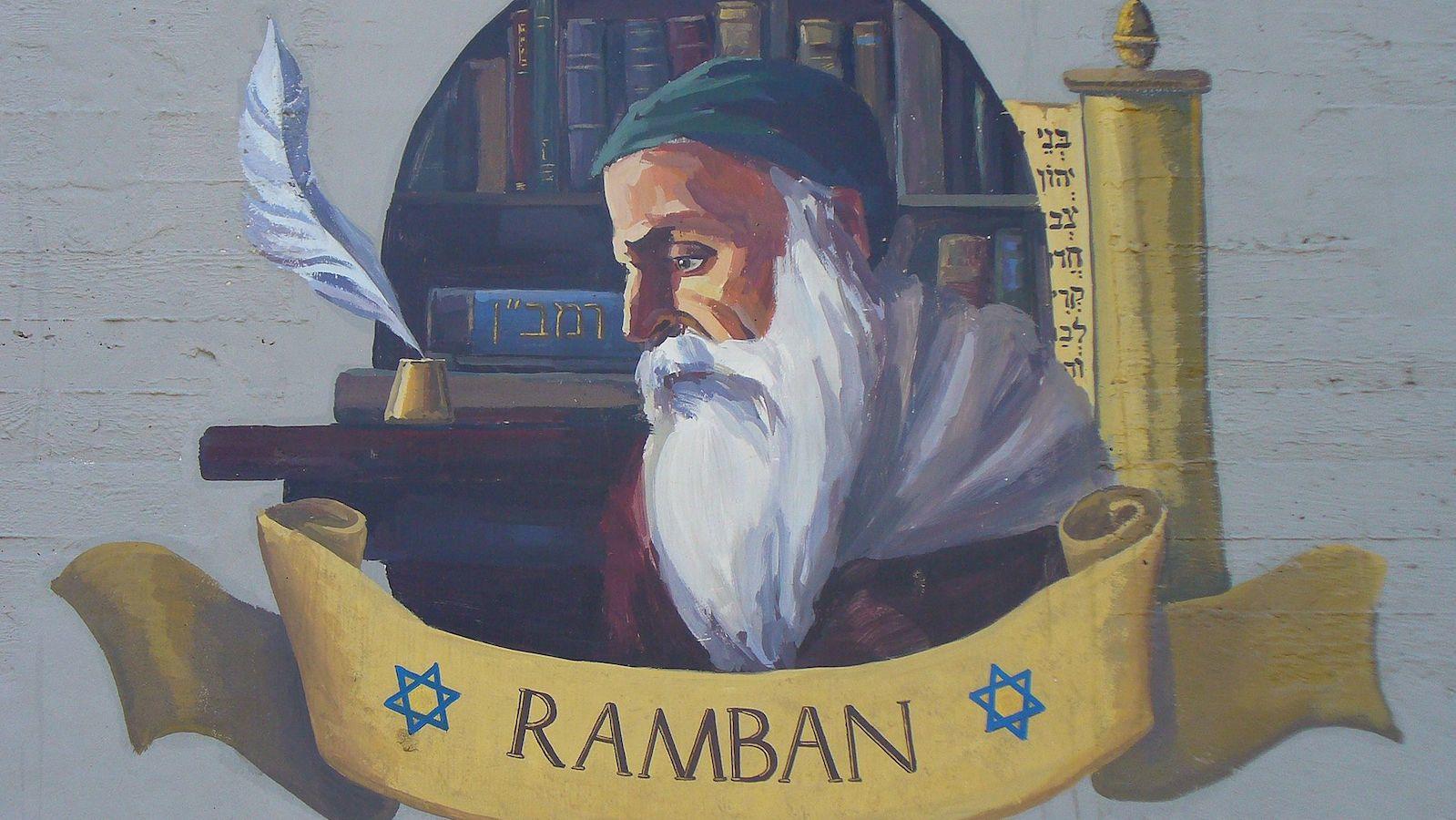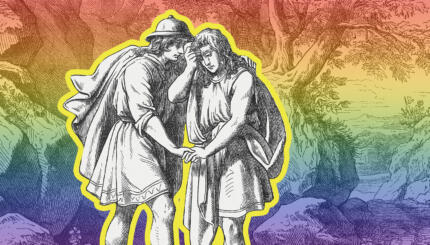Rabbi Moses ben Nahman, a.k.a. Nahmanides, also known by the acronym of his initials, Ramban, was a medieval Spanish Jewish rabbi and thinker who wrote famous commentaries on the Torah and the Talmud. He was also a philosopher, poet and physician. In addition to his commentaries on Jewish sacred texts, he left behind several codes of Jewish law, sermons, piyyutim (religious poems) and other writings.
Nahmanides was born in Gerona, Spain and lived there for most of his life. He was an influential member of the kabbalistic community, though he left few writings about Kabbalah. Late in life, he emigrated to the land of Israel.
Nahmanides’ Torah Commentary
Nahmanides’ commentary on the Torah is one of the standard commentaries printed alongside the Hebrew text, like those of Rashi and Ibn Ezra. Nahmanides often explained the p’shat, the simple meaning of the text, but he also sometimes gave longer philosophical comments and interpolated mystical interpretations. He envisioned the commentary as a synagogue companion, “To appease the minds of the students, weary through exile and trouble, when they read the portion on Sabbaths and festivals.”
In addition to explaining the plain meaning of texts, Nahmanides will sometimes offer reasons for obscure laws. For instance, the Torah forbids very specific species of animals as food, but does not say why they are unkosher. In a comment on Leviticus 11:13 he writes: “The reason for certain birds being forbidden as food is on account of their cruel nature. It is also possible that the reason for certain animals being forbidden is similar, since no animal that chews the cud and has a parted hoof is a beast of prey, while the rest all devour others. “
With your help, My Jewish Learning can provide endless opportunities for learning, connection and discovery.
Mystical insights color Nahmanides Torah commentary as well. For instance, Genesis 2:1 announces the completion of creation: “The heaven and earth were finished, an all their array.” Nahmanides explains “all their array” as follows: “It is here that he [God] has hinted at the formation of the angels in the work of creation. Similarly, the souls of men are included in the host of heaven.“
Nahmanides and Jewish-Christian Relations
Nahmanides was on good terms with Christian notables, including King James I of Aragon before whom he delivered a sermon that still survives. Famously, he participated in the disputation of Barcelona where he publicly debated Pablo Christiani, a man who converted from Judaism to Christianity and then denounced the former. The subject of the debate was whether or not Jesus was the messiah.
Though Nahmanides won the public debate, including 300 dinars of prize money, and wrote down his main points in a work that still survives today, Sefer Vikkuach, his participation made it impossible for him to remain in Catalonia. At the age of 70, Nahmanides was forced to flee Spain and went to Israel. Though he settled in Akko where he continued to write prolifically, he also helped re-establish the Jewish community in Jerusalem following its destruction by the Crusaders in 1099.
During his time in Jerusalem, Nahmanides worshipped in a synagogue in what is now the Jewish Quarter of the Old City. It has been excavated and rebuilt and is a popular tourist attraction to this day.
<!–Louis Jacobs, a British rabbi and theologian, served as rabbi of the New London Synagogue. Rabbi Jacobs lectures at University College in London and at Lancaster University. He has written numerous books, including Jewish Values, Beyond Reasonable Doubt, and Hasidic Prayer. © Louis Jacobs, 1995. Published by Oxford University Press. All rights reserved. No part of this material may be stored, transmitted, retransmitted, lent, or reproduced in any form or medium without the permission of Oxford University Press. –>
Moshe
Pronounced: moe-SHEH, Origin: Hebrew, Moses, whom God chooses to lead the Jews out of Egypt.
Torah
Pronunced: TORE-uh, Origin: Hebrew, the Five Books of Moses.



